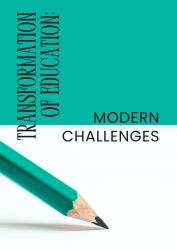Cultivating multiculturalism via teaching phraseology to philology students
Keywords:
Environmental competence, social maturity, high school students, self-development, consequences of the war, culture of society, educational projects, phraseology, skills, philology students, critical thinking, multiculturalism, professional training, intercultural competence, interdisciplinarity, Russia-Ukraine war, cultural context, socio-emotional and ethical training, national valuesAbstract
This research investigates the efficacy of teaching phraseology in philology education to cultivate multiculturalism among students. Phraseology, the study of fixed expressions and idioms within a language, reveals cultural nuances and societal values embedded in linguistic expressions. Teaching phraseology as a pedagogical strategy is examined, emphasizing its role in enhancing students’ intercultural competence and appreciation for linguistic diversity. Through a comparative analysis of phraseological / idiomatic expressions of the Russian, Ukrainian, and English languages, students are prompted to recognize and reflect on shared human experiences and cultural specificities. The findings obtained from surveys and questionnaires evidence that integrating phraseology into philology programs demonstrates positive impacts on students’ cultural awareness and linguistic proficiency. Findings suggest that teaching phraseology enriches students’ linguistic skills and fosters an inclusive and multicultural learning environment despite existing or pending military aggressions, exemplified via the Russian full-scale invasion to Ukraine. Incorporating phraseology into philological education emerges as a valuable tool for preparing students to navigate the complexities of a globalized world. By offering a deeper understanding of cultural nuances and linguistic diversity, phraseology education promotes cross-cultural communication and appreciation. This research underscores the significance of integrating phraseology into philology curricula to foster multiculturalism and prepare students for diverse linguistic and cultural contexts, to promote inclusivity and understanding in an increasingly interconnected world.

TRANSFORMATION OF EDUCATION: MODERN CHALLENGES
Downloads
Pages
Published
Categories
License

This work is licensed under a Creative Commons Attribution-NonCommercial-NoDerivatives 4.0 International License.

